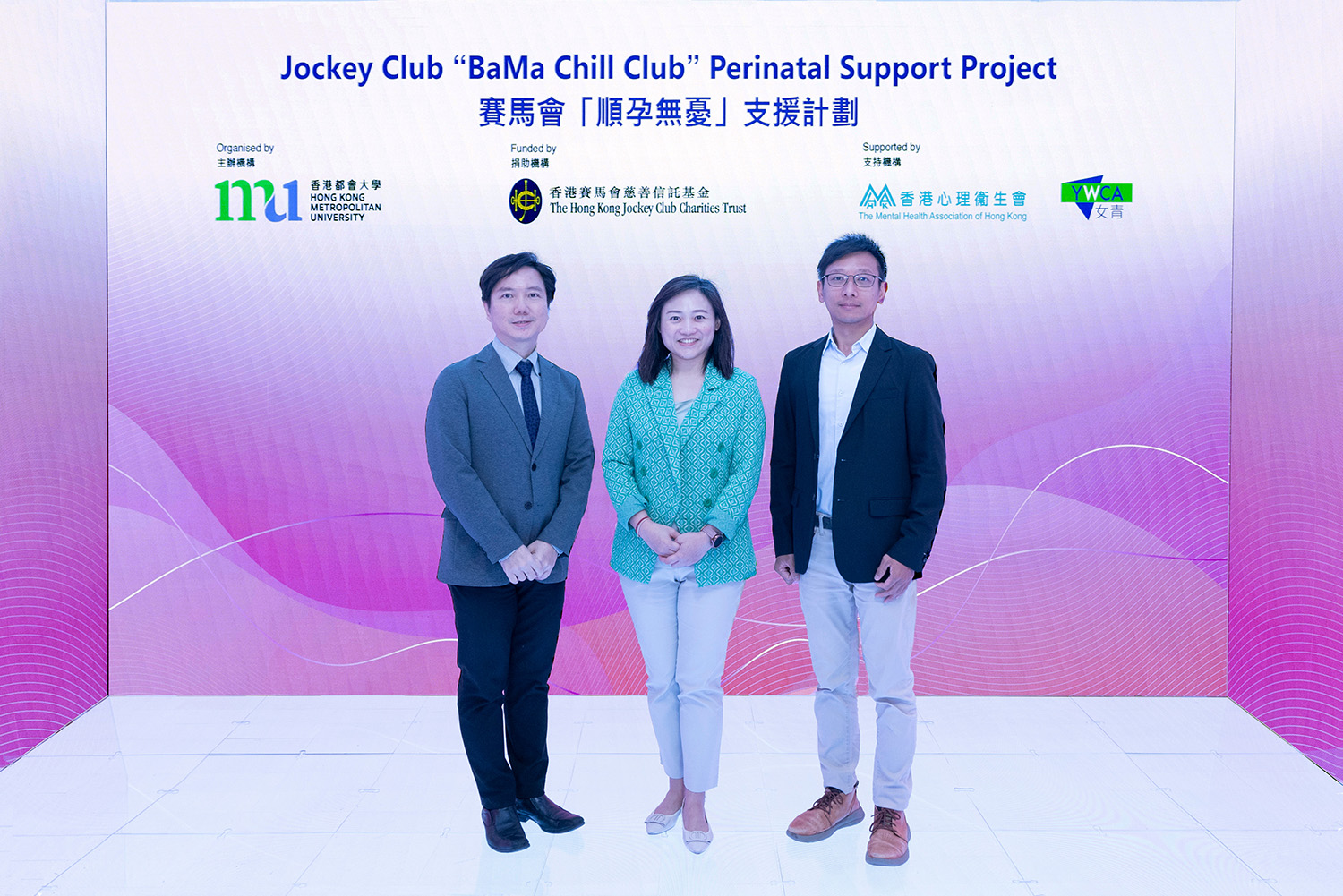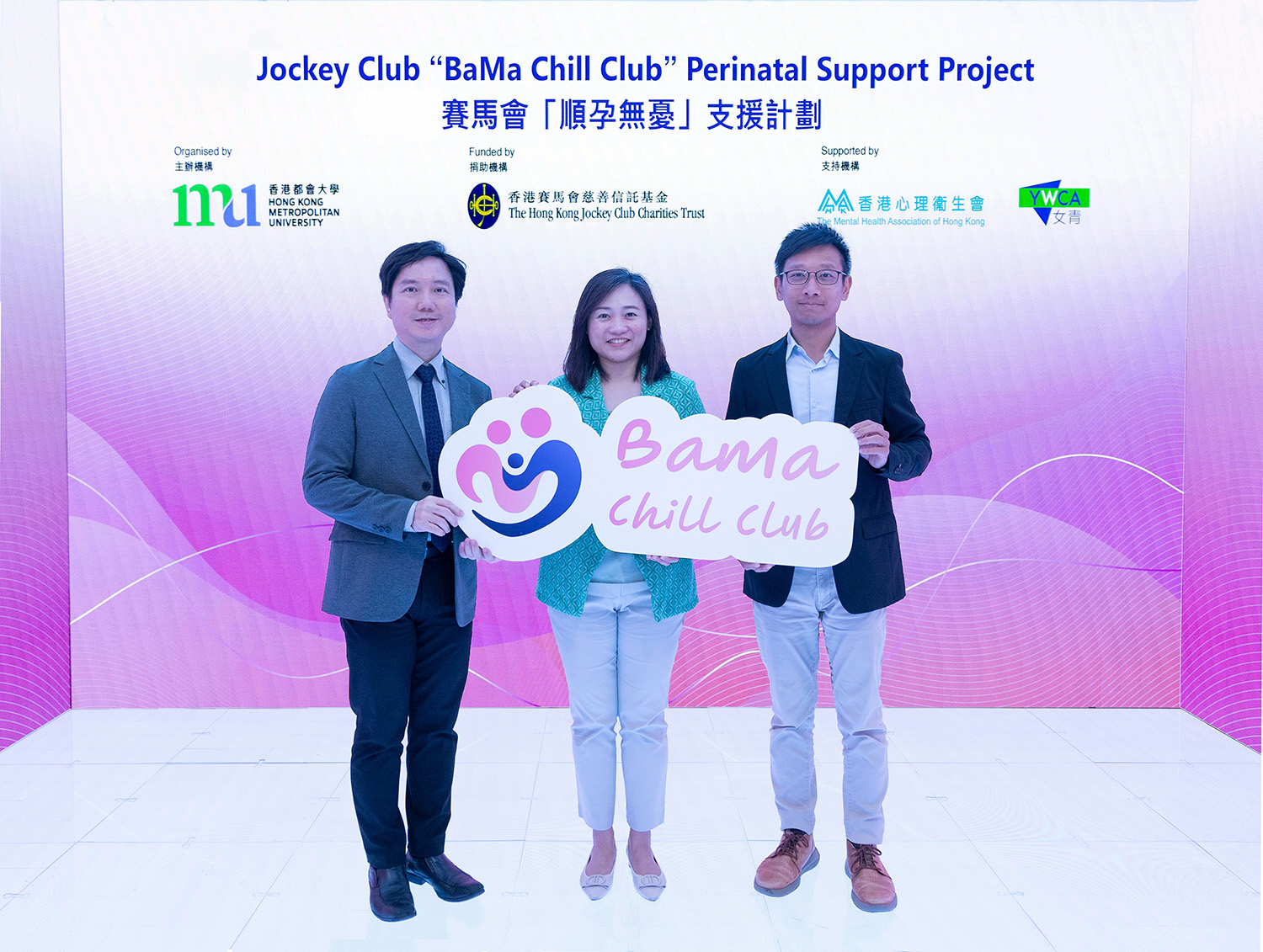Hong Kong Metropolitan University (HKMU)'s School of Nursing and Health Studies received HK$20.3 million from The Hong Kong Jockey Club Charities Trust to support a project titled “Jockey Club 'BaMa Chill Club' Perinatal Support Project”. This initiative focuses on providing depression screening for pregnant women and their spouses, along with services for parents and caregivers. It aims to offer one-stop, comprehensive and personalised support to enhance their mental health, strengthen the training of healthcare professionals, and promote public education.
Giving birth to a child marks a crucial milestone in life, but societal support for pregnant women has centred predominantly on their physical well-being, often overlooking their mental health. According to one study, over 16% of pregnant women in Hong Kong experience postnatal depression, and about 40% of those affected by prenatal depression have not received any support from mental health services, which is a cause for concern.
In view of this, the HKMU School of Nursing and Health Studies, in collaboration with The Mental Health Association of Hong Kong and the Hong Kong Young Women’s Christian Association, will introduce this three-year project in 2024. It is expected to benefit 10,800 pregnant women, as well as 2,000 spouses, family members and caregivers. The project will train approximately 200 nurses and 2,550 nursing students, with the objective of raising community awareness of the mental health of pregnant women in the pre- and post-natal periods, and the caregiving capacity of professional caregivers.
The research team is led by Prof. Janet Wong Yuen-ha, Dean of the HKMU School of Nursing and Health Studies. She said she believes that the project will bridge the existing gap in social services. “This project builds a foundation for academia-clinical-community partnership for addressing complex challenges in postnatal depression using a comprehensive and seamless approach. The collaboration extends the provision and coordination of the Hospital Authority's existing services and enhances the capacity to better respond to women's needs,” she said.
Prof. Wong emphasised that spousal understanding and support, as well as healthy family relationships, are crucial for reducing the risk of perinatal depression. “Our research team aims to launch the first 'family-based' project in Hong Kong, covering all Obstetrics and Gynaecology departments in the public hospital clusters, to enhance the mental health of pregnant women and their families in all respects,” she explained.
The project will be implemented initially in the Obstetrics and Gynaecology departments of eight public hospitals across all hospital clusters in Hong Kong. Utilising an electronic application, the research team will gather data on the health status, social needs and risks of pregnant women attending these clinics and then conduct a survey on their mental health. In addition to subjective data, the team will collect objective data and carry out a biological parameters analysis to assess the risk of depression and anxiety. The team will also recruit pregnant women from social media platforms and discussion forums, and reach out to their spouses and family members through social media channels to ensure that all aspects of their needs are addressed throughout the prenatal and postnatal periods.
Based on the screening outcomes, the research team will follow the Stepped-care Intervention approach to offer tailored measures and services to pregnant women and their families based on their assessed risk level of depression, such as establishing an emotional support hotline to provide a minimum of six prenatal and four postnatal counselling sessions. Additionally, workshops will be organised to help pregnant women and their spouses prepare psychologically for the arrival of their baby, and training will be provided to enhance the skills and knowledge of their family members and caregivers for taking care of the mother and baby.
The team will also prepare a “Baby Box”, which includes prenatal and postnatal baby products, as well as postnatal care items, to foster communication and interaction with pregnant women and to learn about their evolving needs at various perinatal stages. The team will also develop e-learning resources and organise academic seminars. The objectives of the project are to help alleviate the psychological anxiety experienced by pregnant women, take care of the daily needs of their families, and provide both psychological and material support.
Prof. Wong says she hopes that the project will serve as a catalyst for the Government to develop a screening protocol and a long-term support policy for the mental health of pregnant women and their families, and arouse public awareness of mental health through public education and services.



















